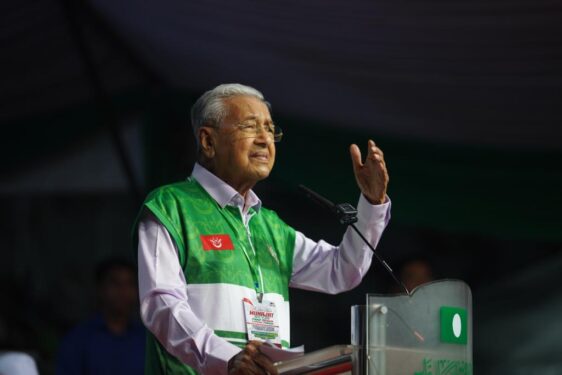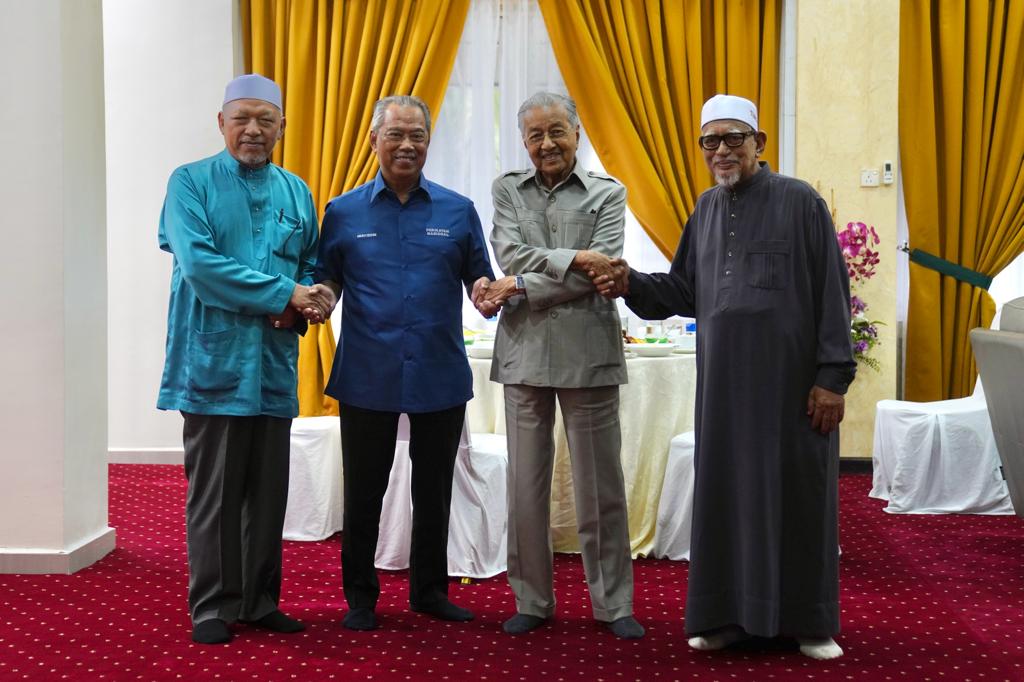IN the tumultuous landscape of Malaysian politics, one figure stands out as a dominant force – Tun Dr Mahathir Mohamad. A political enigma, he has served as the country’s prime minister (PM) on two stints: from 1981 to 2003 and from 2018 to 2020, thus making him the country’s longest-serving leader.
However, his journey has been riddled with twists and turns that have left Malaysians emotionally torn. Dr Mahathir’s early political career in the 1960s saw him joining PAS after losing his seat in a general election.
This early association with the Islamic party foreshadowed his later propensity for making “the enemy of my enemy is my friend” alliances.
Over the years, his tendency to jump from one party to another has been a defining feature of his political trajectory. He has been a member of three different parties, including UMNO, Parti Bumiputera Perkasa Malaysia (PUTRA) and Bersatu.
The impact of Dr Mahathir’s party-hopping on Malaysian politics has been profound and emotional.
Political instability: Dr Mahathir’s departure from UMNO in 2016 led to the collapse of the Barisan Nasional (BN) coalition which had governed Malaysia for 61 years. This upheaval threw the political landscape into turmoil, leaving the nation grappling with uncertainty.
Decline in public trust: Malaysians were left disenchanted with the political system due to Dr Mahathir’s frequent changes within his own UMNO party. The perception of opportunism and self-serving motives eroded public trust in politicians and their ability to address the nation’s pressing issues.

Alliance with PAS: One of the most perplexing aspects of Dr Mahathir’s political career was his association with PAS, a party whose ideologies seemed in stark contrast to his own. This move deepened societal divisions and contributed to the rise of more radical political parties. And yet, the plot thickens further.
In a surprising twist, Dr Mahathir further found himself working with his former foe, the eighth PM Tan Sri Muhyiddin Yassin, who had cheated him out of power in 2000.
The betrayal he experienced two decades ago appeared to be momentarily forgotten as they aligned for the upcoming state election. This unexpected alliance left Malaysians grappling with mixed emotions and questioning the integrity of political relationships.
As the emotional roller-coaster of Dr Mahathir’s political journey continues, there is a growing concern that history might repeat itself.
His moves have left many questioning whether he can be considered an opportunist – ever willing to forge alliances based on short-term gains rather than principled beliefs. Malaysians yearn for stability and leadership that is grounded in integrity, transparency and a steadfast commitment to the nation’s welfare.
The impact of DR Mahathir’s decisions and alliances will undoubtedly leave a lasting mark on Malaysia’s political landscape.
As the nation stands at a crossroads, it must learn from the complexities of Dr Mahathir’s political odyssey. The citizens of Malaysia must demand a political climate that values consistency, honesty, and genuine dedication to the betterment of the country.
While Dr Mahathir’s legacy is mixed with achievements in economic growth and modernisation, it is also marked by controversy and the turmoil of party-hopping.
Only time will reveal the true impact of his actions on Malaysia’s destiny and whether the country can rise above the fray of opportunism and forge a united, prosperous future. – July 23, 2023
Dr Ahmad Zaharuddin Sani Sabri is a former director at the Institute of Tun Dr Mahathir Thoughts.
The views expressed are solely of the author and do not necessarily reflect those of Focus Malaysia.









